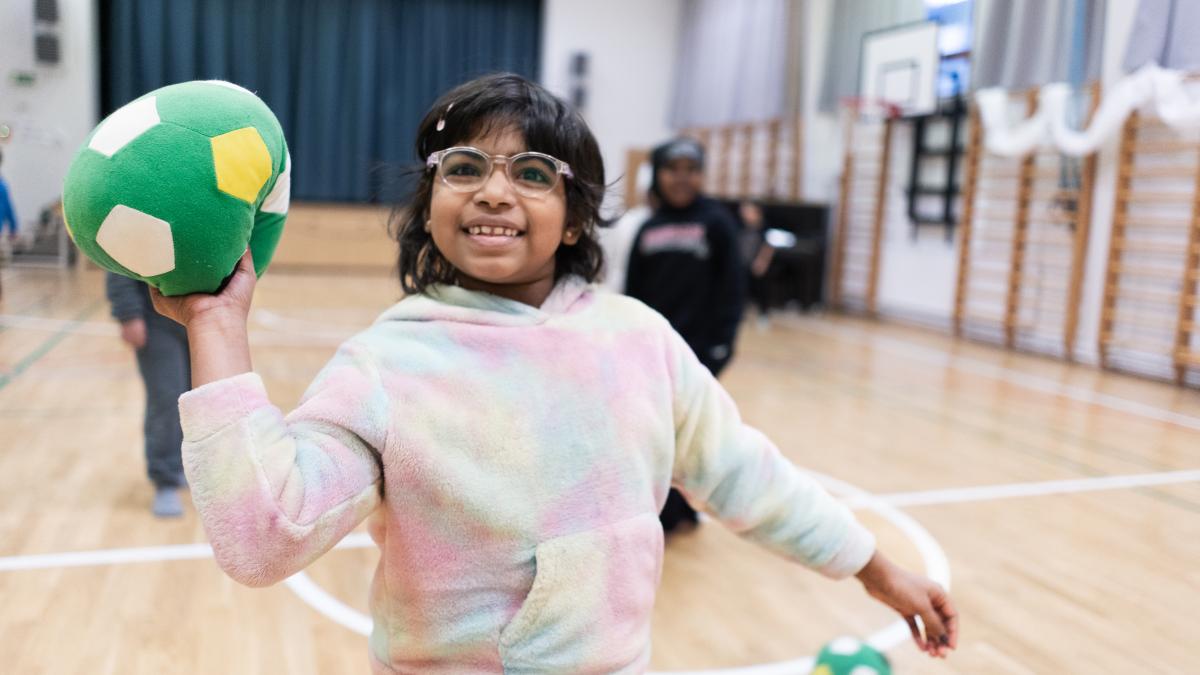Ministry of Education and Culture promotes equity and non-discrimination across the whole education system

The Ministry of Education and Culture has prepared a programme to advocate equity and non-discrimination in early childhood education and care, in schools and in educational institutions. The measures will be carried out over the 2025 to 2027 period.
The programme for equity and non-discrimination in education was formulated as part of the Government statement to Parliament on promoting equality, gender equality and non-discrimination in Finnish society.
The programme aims to offer early childhood education and care providers (ECEC), schools, educational institutions and higher education institutions tools to combat all types of bullying, harassment and discrimination related to personal characteristics, such as gender, appearance, worldview, sexuality, ethnic background, disability or illness, or belonging to a national minority.
“The programme helps professionals in ECEC and in education become more knowledgeable in matters related to equity and non-discrimination. The programme promotes the inclusion of children, young people and students at all levels of education and training as well as in early childhood education and care. Everyone has the right to equity, equality and non-discrimination in education and training. Diversity is a richness,” says Minister of Education Anders Adlercreutz.
Concrete measures
1. Reinforcing staff competence in equity and non-discrimination by means of continuing professional development.
To foster competence, a continuing professional education programme will be provided for teachers and educators to reinforce equity and non-discrimination and to combat racism.
2. Eliminating segregation in general upper secondary education and vocational education and training.
A concrete action plan to reduce gender segregation in educational systems and education paths will be drawn up and implemented. More robust guidance for studies will be provided at all levels of education, with special emphasis on transition phases in education, in further studies and in seeking employment.
3. Formulating quality criteria and assessment tools for early childhood education and care that help implement equity and non-discrimination among children.
Assessment tools will be devised for ECEC personnel, organisers and private service providers so that they can critically review their ECEC services and with a view to formulating pedagogical practices and procedures that promote equity and non-discrimination.
4. Producing procedural practices to help discuss themes related to equity, non-discrimination and antiracism with children and young people.
Procedural practices will be formulated that can be used in early education centres and schools to address issues such as diversity, racism, community spirit and inclusion with children and young people in age-appropriate ways. The themes can be handled by means of arts, culture and youth work, particularly with the help of functional methods and discussions.
5. Launching communications measures in line with the objectives of the programme to improve knowledge and wellbeing among young people.
The message of how important equity and non-discrimination are in society will be conveyed in communications. Everyone’s right to non-discrimination and a safe learning environment will be highlighted.
6. Examining practices and creating new procedural practices for dismantling gender stereotypes and intervening in harassment.
The programme helps adults working in schools and educational institutions find ways to identify and recognise experiences of harassment and discrimination in their organisations. Learning materials will include ways to examine how equity and non-discrimination can be achieved.
7. Exploring children's and young people's experiences of equity and non-discrimination.
Children’s and young people’s views on how they experience equity and non-discrimination will be explored, and especially those at risk of discrimination will be heard.
8. Encouraging liberal education students to engage in equity and non-discrimination efforts at educational institutions.
Under this measure, student panels and other procedures will be set up to encourage students to take part in giving continuous and routine feedback and make them aware of gender equality and non-discrimination issues.
9. Bolstering measures against bullying in primary and lower secondary education to reduce negative phenomena and consequences.
Ways to achieve equity and non-discrimination in all anti-bullying measures in schools will be taken into account, since children and young people with a migrant background as well as gender and sexual minorities, for example, experience bullying and discrimination more often than others.
10. Providing more opportunities for parents with a migrant background to support their children's schooling.
The aim is to collect useful case examples that could be introduced into the Finnish school system for reaching parents with a migrant background, strengthening inclusion and ensuring smooth cooperation between home and school.
Programme for equity and non-discrimination in education and training
Programme on the Ministry's website (in Finnish)
Inquiries:
- Maija Mielonen, Senior Specialist, tel. +358 295 330 026
- Anssi Pirttijärvi, Senior Ministerial Adviser, tel. +358 295 330 029

